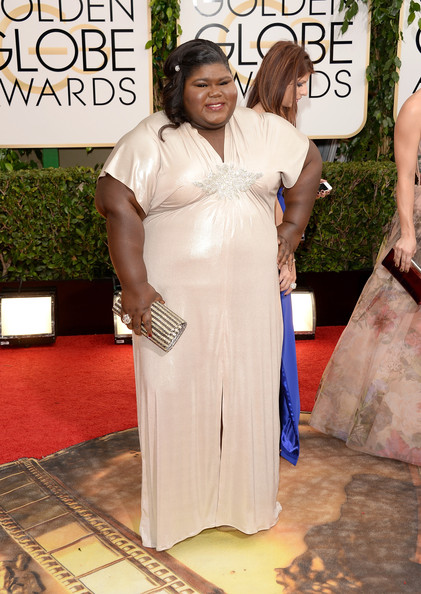
Because not liking her dress and not liking her body are not the same thing.
Acceptance isn’t approval.
Acceptance in the context of Fat Acceptance is an acknowledgement of an individual’s right to personhood, self-respect and self-determination. Fat Acceptance is not fat approval. Fat Acceptance is not a space to debate health and fitness. Fat Acceptance doesn’t mean you have to think Gabourey Sidibe is beautiful. It means you don’t tweet her mean shit under the guise of being “concerned” about her health. It means you respect her enough to not offer her unsolicited health advice. It means you acknowledge her talents and how truly hilarious she is.
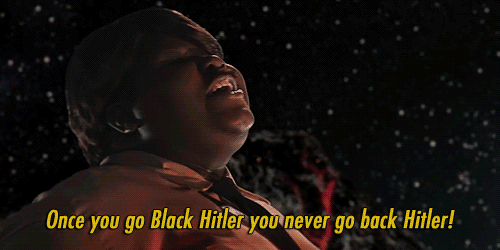
But, Black Woman are Allowed to Be Fat?
Being identified with something doesn’t mean you are allowed to exist by a different set of standards. Fatness, like single-motherhood and aggression are still things that woman are judged and stigmatized for in our culture, black women are no different. I’ll believe black women are “allowed” to be fat when fat black females are afforded starring roles rather than supporting ones. I’ll believe black women are “allowed” to be fat when fat black females actors are consistently allowed to play characters with agency, love interests, desires and a fully fleshed out backstory. I’ll believe black women are “allowed” to be fat when fat or curvy black females appear on the cover of “body” issues and are presented as sexy in our mainstream culture. When Amber Riley gets the Christina Hendricks treatment, that’s when I’ll become a believer.
In her essay “Weighting To Be Seen: Race, Invisibility And Body Positivity” Writer and activist Sonya Renee writes:
“The same day I watched the slideshow of body positive heroines, sans any black or brown bodies, TBINAA posted a clip from GLEE’s Amber Riley, dominating the cha- cha on Dancing With the Stars. There was nary a peep in the media about her beautiful example of movement, endurance and power in a large body. Several articles talked about what a great job she did. One article even mentioned she was “plus sized” but no one was mentioning television star Amber Riley as a “body image” heroine. Why? Because the social narrative is “she is a singing Black girl; she’s supposed to be fat.” Such an assumption renders her body an act of happenstance. Her body “just is” and therefore is not noteworthy. It would be like reporting she has a nose. “Of course she is fat!” the world says. And boldness in her particular body is nothing to aspire to. She is not Kirstie Alley, former Cheers star and DTWS alum whose fatness was such a novelty in Hollywood, that it garnered an entire HBO Series, “Fat Actress” and of course set the course for dramatic weight loss. “
Sidenote, when Amber Riley’s character on “Glee” had a relationship with Chord Overstreet’s character on “Glee”, so many fans were claiming that the pairing was unrealistic, that the actress took to tumblr to defend herself. Proof that while black women are “allowed” to be fat, their fatness somehow makes things like dating attractive men “impossible”.
Speak of relationships, Erika Nicole Kendall, a fitness guru, writer and creator of “A Black Girl’s Guide to Weight Loss”, acknowledges the complicated place that fat black women often occupy when it comes to dating and beauty standards in her post “Dating While Fat and Feminist, And The Nasty Things You Learn About People After You Lose Weight”:
“You also start to hear stories of how some men only “use” overweight Black girls as a “last resort,” meaning that if a guy can’t pull a more socially-approved-as-sexy-looking-woman, he’ll go to her because at least he knows “I’ll get laid tonight, and breakfast tomorrow.” You start to find out how some men manipulate society’s fat-hating culture into a way to skate by without accepting any responsibility for anything: “if fat Black women are considered the least worthy of love and affection, then if I choose one, she’ll do anything and tolerate anything to keep me.”
“Plus, yo my bitch make your bitch look like Precious”. – Kanye West rapping in “Mercy”
“My body mass index is not great. But I’m not like Precious or anything, you know?” – Mindy Lahiri in “The Mindy Project”
The barbs thrown at Gabourey Sidibe on social and in mainstream and black-oriented media are constantly being hurled because she had the nerve to be the worst thing you could be as a woman in our culture. Those insults are a hard packed snowball of misogyny, misogynoir, colorism, classism, and racism. She’s fat, black and dark-skinned and she’s unapologetic about all three. Gabourey Sidibe is the best sort of arrogant. She’s delightfully cocky. She isn’t asking permission to exist because she’s already here and she’s not going anywhere. But if she does decide go anywhere, she might take a private jet.
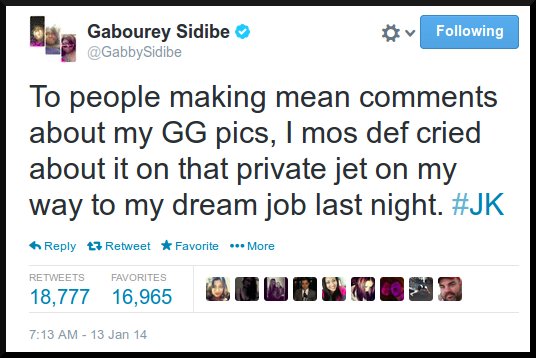
“Precious” has become shorthand for the point of no return when it comes to being unattractive. It’s a go-to insult for any woman who dares to be fat, dark and present, especially if she’s cocky or loud. But, in case you didn’t hear her the first time, Gabourey Sidibe isn’t Precious.
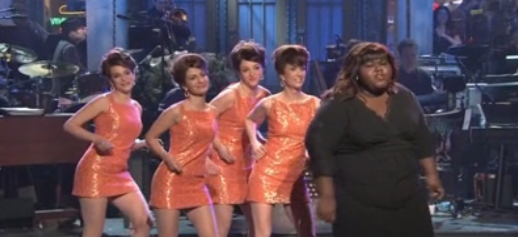
(Sidibe Performing “I’m Not Precious” in her opening monologue during “Saturday Night Live”)
The Fat Acceptance movement is seriously lacking in intersectionality.
Like that other women’s movement, Fat Acceptance hasn’t always done a great job on the intersectionality front. While many of the (mostly white) women in the movement are fighting for their place on the pedestal, black women have to fight colorism and racism in addition to fat-ism. In addition to that, women like Gabourey Sidibe fall victim to respectability politics. Rather than promote and celebrate black beauty, especially dark-skinned black beauty, some seek to prove that black women can compete by promoting and valuing certain types of black women over others. In order to put our best face forward we are required to speak proper English, pull up our pants and have thin bodies.
I hope one day see a movement akin to Womanism where black woman can collectively talk openly body diversity without being made invisible or reduced to stereotypes and Sir Mix-A-Lot lyrics. The conversation right now feels disjointed but at least it’s taking place. Until we’ve reached that point, however, we’ll always have tumblr.

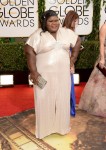
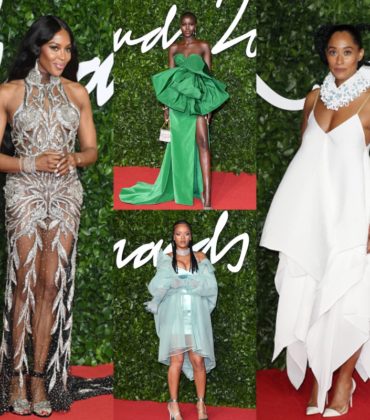
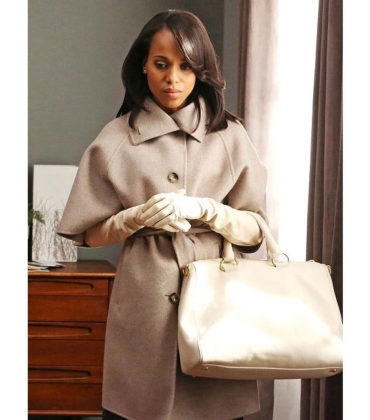
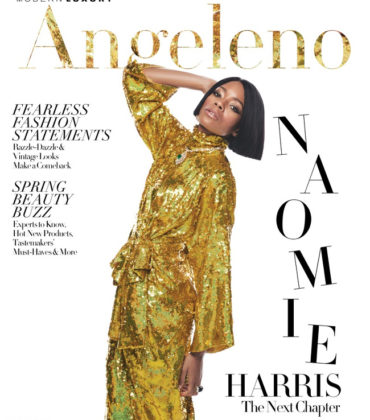
I was so pleased to see this, glad you wrote it. Fat Black women need more of it!!!